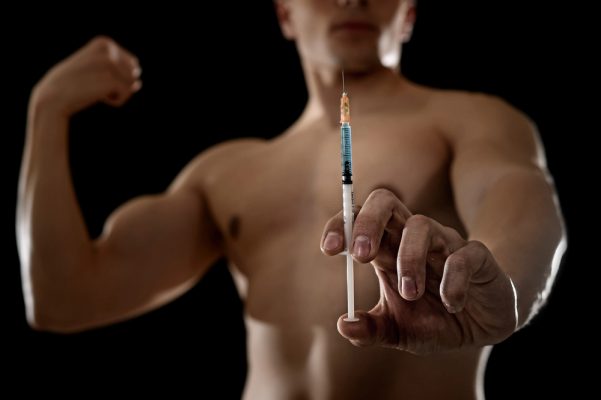Top Signs of Low Testosterone You Shouldn’t Ignore

confidence in men. While it naturally declines with age, a significant drop—known as low testosterone or Low T—can negatively affect multiple aspects of your health. Understanding the signs of Low T can help you seek early treatment and reclaim your vitality.
At Florida Men’s Health, we specialize in diagnosing and treating testosterone deficiencies to restore your energy, sexual health, and confidence. Here are the key warning signs of Low T you should never overlook.
Physical Symptoms of Low Testosterone
Your body often provides the first clues that testosterone levels are dropping. These physical symptoms may develop gradually but have a significant impact on your daily life.
1. Fatigue That Won’t Go Away
Do you wake up feeling exhausted even after a full night’s sleep? Chronic fatigue is one of the most common signs of Low T. Men with low testosterone often report a lack of energy for physical activities, work, or hobbies they once enjoyed.
2. Loss of Muscle Mass and Strength
Testosterone is essential for building and maintaining muscle. A decline in this hormone can make it harder to gain strength or keep muscle tone, even if you exercise regularly.
3. Weight Gain, Especially Around the Belly
When testosterone levels drop, fat distribution shifts, often leading to increased abdominal fat. This weight gain can further suppress testosterone production, creating a vicious cycle.
4. Hair Thinning or Loss
Testosterone plays a role in hair production. Men with Low T may experience thinning hair on the scalp, face, or body, even if they’re not genetically predisposed to baldness.
Emotional and Mental Symptoms
Low testosterone doesn’t just affect your body—it also takes a toll on your mind and emotions.
5. Mood Swings and Irritability
Feeling unusually short-tempered or frustrated? Testosterone influences mood regulation. A deficiency can lead to irritability or even bouts of anger over minor issues.
6. Depression or Persistent Sadness
Testosterone helps regulate serotonin, the “feel-good” neurotransmitter. Men with Low T often report feelings of sadness, hopelessness, or a lack of motivation.
7. Difficulty Concentrating
Commonly referred to as “brain fog,” Low T can impair your ability to focus, recall information, or think clearly. This can be particularly frustrating in professional and personal settings.
Sexual Symptoms of Low Testosterone
Low testosterone is closely tied to sexual health. A decline in hormone levels can directly impact performance and satisfaction.
8. Reduced Libido
Testosterone drives sexual desire, so a drop in this hormone often leads to a noticeable decrease in interest or desire for intimacy.
9. Erectile Dysfunction
While ED can have multiple causes, Low T contributes by reducing nitric oxide production, which is essential for blood flow to the penis.
10. Lowered Sexual Satisfaction
Men with Low T may find that sexual experiences feel less enjoyable or satisfying, even if they can still achieve an erection.
What Causes Low Testosterone?
Several factors can contribute to a decline in testosterone levels, including:
- Aging: Testosterone naturally decreases by about 1% per year after age 30.
- Obesity: Excess fat tissue can convert testosterone into estrogen, lowering levels further.
- Chronic Illness: Conditions like diabetes, thyroid disorders, or sleep apnea can suppress testosterone production.
- Medications: Certain drugs, such as corticosteroids and opioids, interfere with hormone regulation.
- Stress: Elevated cortisol levels from chronic stress can inhibit testosterone production.
When to Seek Professional Help
If you recognize these symptoms in yourself, it’s time to take action. Seeking treatment early can prevent further health complications and significantly improve your quality of life.
Why Early Intervention Matters
- Prevents long-term effects such as osteoporosis or cardiovascular issues.
- Restores energy, libido, and confidence.
- Enhances overall mental and emotional well-being.
At Florida Men’s Health, we provide comprehensive testing and personalized treatment plans to address your specific needs.
How Florida Men’s Health Can Help
Our clinic specializes in diagnosing and treating Low T with advanced solutions tailored to your lifestyle and goals.
1. Testosterone Replacement Therapy (TRT)
TRT is a safe and effective way to restore testosterone levels. We offer:
- Injections: Administered weekly or biweekly for consistent results.
- Topical Gels or Patches: Convenient, daily applications absorbed through the skin.
- Pellet Implants: Long-lasting solutions that release testosterone steadily over time.
2. Lifestyle Counseling
We help you implement sustainable changes, such as:
- Regular exercise routines to boost natural testosterone.
- Balanced diets rich in nutrients that support hormone health.
- Stress management techniques to reduce cortisol levels.
3. Comprehensive Support
From diagnosis to treatment and beyond, we’re with you every step of the way to ensure lasting results.
Key Takeaways
- Low T affects physical, emotional, and sexual health, with symptoms like fatigue, weight gain, mood swings, and reduced libido.
- Causes include aging, chronic illness, stress, and lifestyle factors.
- Florida Men’s Health provides advanced treatments like TRT and personalized care to help men reclaim their vitality.




